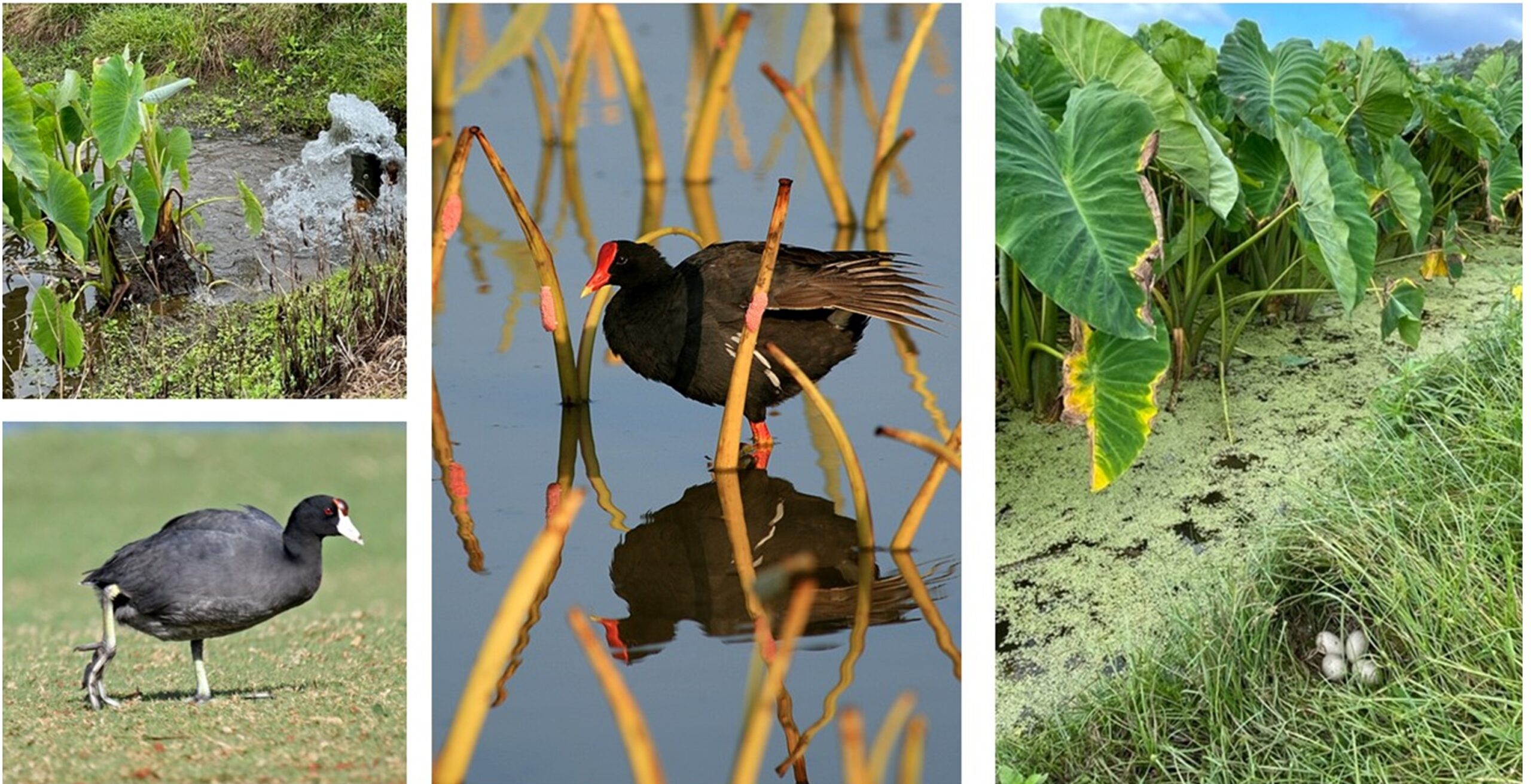
Photo collage courtesy of Friends of Kauaʻi Wildlife Refuges
Hanalei National Wildlife Refuge on the Island of Kauaʻi is a haven for Hawaiʻi’s native waterbirds. It was established 50 years ago to create and enhance wetland habitat that benefits the endangered and threatened waterbirds that are trust species for the U.S. Fish and Wildlife Service and are so esteemed by Hawaiians. Kalo (taro) farming is integral to Hawaiian culture and provides food security for local people, and the 917-acre Refuge has approximately 160 acres managed as loʻi kalo (taro patches).
Five native, resident waterbird species (see them all on our Hawai’i Wetlands page) can be found at Hanalei as well as migratory bird species that winter on the Hawaiian Islands. Kauaʻi, and particularly the Refuge, is a stronghold for the endangered Koloa Maoli (Hawaiian Duck, Anas wyvilliana) and Kauaʻi is critically important to the ‘Alae ‘ula (Hawaiian Common Gallinule, Gallinula chloropus sandvicensis). The habitats at Hanalei, either the loʻi kalo or the semi-natural, managed wetland acres, rely on the predictable availability of water–in particular, fresh water from the Hanalei River. When there is not enough water flow, the chances of botulism outbreaks increase, which can have an outsized impact on vulnerable species with low population numbers.

Photo collage courtesy of Friends of Kauaʻi Wildlife Refuges
It is truly a collective effort that supports the multiple uses of Hanalei’s habitats. Refuge managers, farmers, partners and friends all contribute expertise, time in the field, or funding support. A 2021 Partnership Grant from Pacific Birds, as well as a U.S. Fish and Wildlife Service North American Wetlands Conservation Act (NAWCA) award, are helping address the aging water infrastructure at Hanalei, and farmers are taking steps to keep the habitats safe for birds.
By replacing pipes and water control structures, managers hope to reduce and mitigate the decade-long incidence of botulism outbreaks at the Refuge and increase survival of adult and young birds alike. Friends of Kauaʻi Wildlife Refuges has been assisting with fundraising efforts for this and other Refuge projects.
